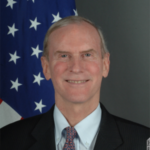(This brief story dates from the author’s tour as a consular officer in AIT over 30 years ago, and represents his personal account of a Taiwanese man’s suffering under the “White Terror,” which highlights the terrible price one man paid during that era in Taiwan politics.)
President Tsai Ing-wen (蔡英文)—during her inauguration speech on May 20— announced a plan to “establish a Truth and Reconciliation Commission (真相與和解委員會) inside the Presidential Office,” which would “address the historical past in the most sincere and cautious manner. The goal of transitional justice is to pursue true social reconciliation, so that all Taiwanese can take to heart the mistakes of that era.”
Discussion of the need for reconciliation on the part of the people and government of Taiwan for the “White Terror” of the late forties and early fifties underscores the lasting damage, in both political and personal terms, done by Chiang Kai-shek’s draconian policies in the first years after he retreated to the island from the Chinese mainland.
As I follow recent discussion within Taiwan of efforts toward reconciliation, concerning the “White Terror” inflicted upon so many Taiwan citizens in the early 1950’s, an incident comes to mind from 35 years ago, when I was a young consular officer at the AIT, in Taipei. This was the newly opened, unofficial office of the US Government to manage relations with Taipei following Washington’s de-recognition of the Republic of China (ROC).
I was working in AIT’s immigration unit, assessing the merits of Taiwan citizens applying to immigrate to the United States, when a strange case landed on my desk. It was the application of an older Taiwanese man seeking to immigrate to America, in order to join a family member already living in the United States. He struck me as a simple, pleasant fellow, anxious to do whatever was necessary to acquire a visa.
As a standard part of the process, the applicant was asked on his form if he had ever committed a crime. When he checked the box in the affirmative, we asked him to return with a transcript of his case, so we could determine if the crime was significant enough to warrant rejection of his case.
When the gentleman returned with the requested materials, along with a copy translated into English, I was shocked to learn that he had spent nearly 20 years in prison, convicted by a martial law court on a charge of treason. The transcript covered a case involving several neighbors in a village just outside of Taipei, who were accused of plotting a rebellion against the KMT government. It spoke of a secret circle of conspirators who intended to rise up against the ROC Government, with allegations of a secret cache of weapons hidden on Yangmingshan (陽明山 or Grass Mountain).
I asked the man what this was all about. He described how he and a number of old friends used to regularly gather at a local tea shop to drink tea and chat in the evenings and weekends after work. One day they were all rounded up by the police and charged with fomenting rebellion. The court record he brought in lacked much real evidence other than hearsay, but the military court quickly found all the defendants guilty.
Several were condemned to death and shot; the man I was interviewing was sentenced to life in prison. His sentence was commuted in the late sixties to time served, and he was released after being locked up for nearly 20 years.
I asked him if there was any substance to the charges. He denied that there was anything other than friendly chatter about everyday matters. The applicant persisted in saying he had no idea what had caused the Chiang Kai-shek government to arrest him and his friends. Throughout our discussions, I was struck by the simple and straightforward manner in which he described this terrible miscarriage of justice, which had extracted such a heavy price from him and his friends.
Based upon my understanding of the historical circumstances, with the KMT government having just retreated from the mainland and launching a campaign to eradicate any dissent—real or apparent—toward their rule, I sent the case to Washington. I included my recommendation that we waive the visa ineligibility and issue the man a visa to immigrate to the United States.
Shortly thereafter Washington approved my recommendation. I was able to provide this old gentleman the papers allowing him to join his children in the United States. I hope he lived a long and happy life. But as I ponder the whole question of reconciliation in 21st century Taiwan, I am reminded of the human cost the early paranoia of Chiang Kai-shek and his government exacted from so many citizens of Taiwan, over 60 years ago.


